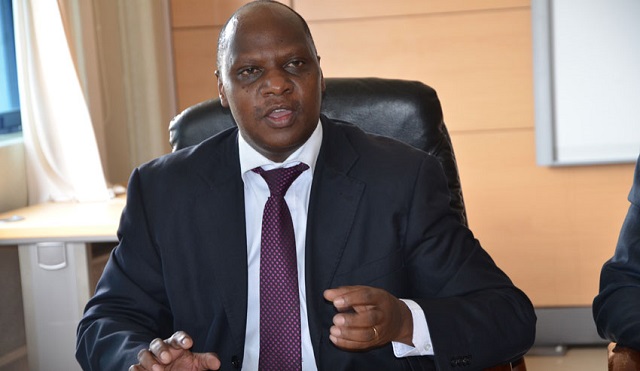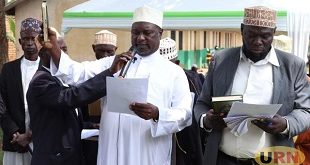
But political temperature remains low as potential candidates collect signatures
Kampala, Uganda | JOHN MBARAGA | In just over two months Rwandans head to the polls to choose their next parliamentary representatives, but the political temperature is yet to rise as potential candidates move around constituencies collecting signatures to support their candidature.
Rwanda’s National Electoral Commission (NEC) estimates that 7.2 million voters will participate in the elections in which candidates from the ruling Rwanda Patriotic Front (RPF), Social Democratic Party and Liberal Party, among others, will be seeking people’s mandate.
Currently, RPF dominates both chambers of parliament. Rwanda runs a bicameral parliamentary system with two chambers; the Lower Chamber and the Senate (Upper Chamber).
In telephone interview with The Independent last week, NEC executive secretary Charles Munyaneza said preparations for the poll are going on well, adding that the electoral body and was currently consulting with different stakeholders, including political parties, the civil society, local leaders and donors, among others, to ensure the exercise runs smoothly.
Already, the commission has received six potential aspirants seeking documents allowing them to collect signatures to support their candidature, he said. “We are already receiving individual candidates seeking NEC documents to go and collect signatures in constituencies to endorse their candidacy,” he said, adding the commission was receiving different interested people.
Seats up for grabs
Parliamentary elections are scheduled to kick off on September 2, with Rwandans living abroad casting their ballots first, and the following on September 3 the exercise will be carried out within the country. There are 80 seats in the Lower Chamber that are up for grabs, 53 of which are for directly elected MPs belonging to different political organisations.
A total of 24 seats are reserved for women representatives, who are elected through the National Women Council structures, while two seats are for youth representatives, and one goes to an MP for people living with disabilities.
Presently, seven political parties have representatives in the current parliament and senate. Overall, Rwanda Parliament consists of 106 parliamentarians, including 80 in the Lower Chamber and 26 senators in the Upper House. MPs served a 5-year term, while senators have an 8-year term of service. Senate polls are for next year. Rwanda’s Parliament is largely dominated by women, taking 64% of the total seats in all chambers.
Preparedness level
Munyaneza added that the commission was in final process of updating voters’ list, an exercise that started in May. He said that civic education was ongoing, adding that youth and persons with disabilities have already been sensitized on the electoral process and rights as citizens as they prepare to elect their representatives to parliament.
“Starting from July 12-15, they will be receiving candidates from both political parties and independent candidates and evaluate them. Those who will meet the requirements will start to campaign thereafter,” the NEC chief explained.
Independent candidates can only be eligible to compete for a parliamentary seat after securing 600 signatures of voters supporting the candidature, according to the electoral code.
Munyaneza said that the elections will cost a total of Rwf5.4 billion. “The activities we have so far done this fiscal year and those that are in the pipeline, the total budget will be over Rwf5.4 billion,” he explained.
Election observers
Munyaneza said that they are receiving election observers, and the commission has already issued documents to many groups allowing them to observe the forthcoming elections. The NEC official said the commission is also currently holding consultative meetings with different institutions and stakeholders who “play a big part in elections” such as donors, foreign envoys and civil society organisation. “We are organizing a meeting with local civil society organisations to be held soon, and we will later meet leaders of political parties,” he said, adding that they have already met with diplomats.
 The Independent Uganda: You get the Truth we Pay the Price
The Independent Uganda: You get the Truth we Pay the Price



